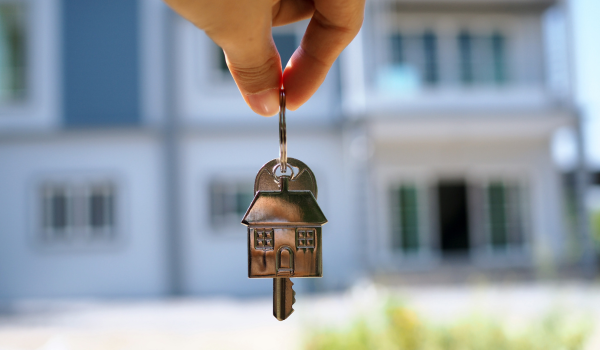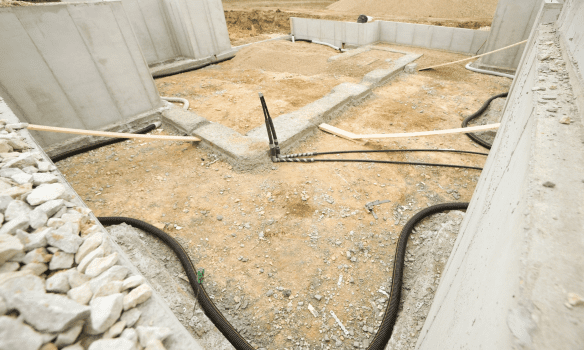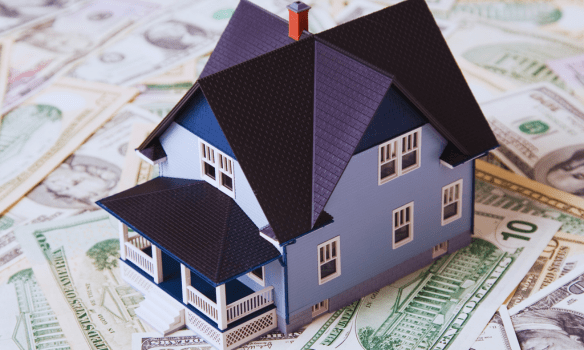In today’s real estate market, it is not uncommon for houses to have liens placed on them. A lien is a legal claim against a property used as collateral for a debt or obligation. This can happen for various reasons, such as unpaid taxes, outstanding construction bills, or legal judgements. When a lien is placed on a property, it can complicate the house’s selling process. Many homeowners may wonder if selling a house with a lien on it is possible.

The short answer is yes, it is possible, but it can be a complex and challenging process. In this article, we will delve into the details of selling a house with a lien and explore the potential challenges homeowners may face. Additionally, we will discuss the steps that can be taken to successfully sell a house with a lien and provide some tips to help navigate this potentially daunting process. Whether you are a homeowner facing a lien on your property or a potential buyer interested in purchasing a house with a lien, this article will provide valuable insights and information to help guide you through this situation.
Understanding the impact of liens.
When buying or selling a property, understanding the impact of liens is crucial. A lien is a legal claim or encumbrance placed on a property to secure the payment of a debt. Various entities, such as creditors, contractors, or the government, can place it. Liens can significantly impact the sale of a house as they create a cloud on the title, which raises concerns for potential buyers. Depending on the type of lien, it may need to be satisfied or released before the sale can proceed. It is essential for both buyers and sellers to thoroughly research the title of a property to determine if any liens exist and to address them accordingly.
Please address liens to avoid complications and delays in the sales process. Therefore, working with experienced professionals such as real estate agents and attorneys who can navigate the complexities of liens and ensure a smooth transaction is essential. Buyers and sellers can confidently proceed in their real estate transactions by understanding the impact of liens and taking the necessary steps to address them.
Steps to selling a liened house.
Selling a house with a lien on it can be a complex process, but it can be accomplished successfully with proper steps and guidance. The first step is to identify all existing liens on the property by conducting a thorough title search. This will help determine the extent of the lien and the amount owed. Once the liens are identified, it is crucial to communicate with the lienholders to discuss potential options. These may include negotiating a settlement or payment plan to satisfy the lien. It is also essential to consult with a real estate attorney who can provide legal advice and guidance throughout the process.
Additionally, obtaining a lien release or satisfaction document from the lienholder is essential to clear the title and proceed with the sale. Finally, working with a knowledgeable real estate agent who understands the complexities of selling a liened house can help navigate the process smoothly and ensure a successful sale.
Selling a liened house
Research state laws on liens and property sales.
The first step when selling a house with a lien is to research and understand the state laws regarding liens and property sales. Each state has its specific regulations and requirements, which may determine whether a house can be sold with a lien or if the lien must be satisfied before the sale can proceed. It is crucial to consult with a qualified real estate attorney or a knowledgeable professional to ensure compliance with the relevant laws and to navigate through the intricacies of lien removal if necessary. By understanding the state laws, homeowners and potential buyers can make informed decisions and take appropriate actions to complete a house sale, even if there is a lien on the property.
Obtain a payoff amount from the lien holder.
Once it has been determined that a house has a lien, the next step is to obtain a payoff amount from the lien holder. This amount represents the total sum of money required to satisfy the outstanding debt and have the lien removed from the property. The payoff amount considers any principal balance, accrued interest, and any additional fees or penalties that may have been incurred.
It is essential to contact the lien holder directly to obtain an accurate and up-to-date payoff amount, as this information may vary depending on the terms of the lien. The payoff amount will then be used to calculate the house’s final sale price, ensuring that the lien is fully satisfied before the transfer of ownership can take place.
Negotiate with lien holder for a lower payoff amount.
Negotiating with the lien holder is essential to determine the best course of action. One possible approach is to discuss a lower payoff with the lien holder. By engaging in open communication and demonstrating a willingness to resolve the situation, reaching a mutually beneficial agreement may be possible. This negotiation process can involve exploring options such as a discounted payoff or a payment plan. Ultimately, the goal is to find a resolution that allows the sale of the house to proceed smoothly while satisfying the lien holder’s financial interests.
Put the house up for sale and disclose the lien
It is crucial to disclose the existence of the lien to potential buyers. Transparency is vital in real estate transactions, and failing to disclose a lien can lead to legal complications. Once the lien is disclosed, the seller can still put the house up for sale. However, it is essential to note that the sale proceeds will typically be used to satisfy the outstanding lien amount before any remaining funds are disbursed to the seller. This ensures the lien is settled correctly and the buyer does not inherit any outstanding debts. Working closely with a real estate attorney or professional specializing in liens is essential to navigate the process smoothly and meet all legal obligations.
Use proceeds from sale to pay off the lien.
One common approach is using the sale proceeds to pay off the lien. This means that once the house is sold and the transaction is complete, the seller can use the money from the sale to settle the outstanding debt. By prioritizing the payment of the lien, the seller can clear any encumbrances on the property and ensure a clean title for the buyer. However, addressing the lien before proceeding with the sale is crucial to avoid any legal complications or disputes.
Finalize sale and transfer ownership to new buyer.
Determining the type of lien on the property and its status is essential. Once this information is obtained, the seller can work towards satisfying the lien. This may involve paying off the outstanding amount or negotiating with the lienholder for a release of the lien. Once the lien is satisfied, the seller can finalize the sale and transfer ownership to the new buyer. This typically involves signing the necessary paperwork, including the deed and transfer documents, and meeting all legal requirements. It is crucial for both the seller and the buyer to work closely with their respective legal advisors and real estate professionals to navigate this process successfully and protect their interests.
Negotiating with lien holders
When dealing with lien holders, it is essential to approach the negotiation process with a clear understanding of your goals and a willingness to find a mutually beneficial solution. Start by gathering all relevant information about the lien, including the amount owed, the terms of the lien, and any supporting documentation. This will allow you to present a well-informed case during negotiations. When communicating with the lien holder, be respectful and professional, clearly expressing your desire to resolve the situation and sell the property.
Consider proposing options such as a lump sum payment, a payment plan, or a reduced settlement amount, depending on your financial situation and the lien holder’s willingness to negotiate. Remember that lien holders may have financial constraints or concerns, so a willingness to compromise and find common ground is vital. Throughout the negotiation process, consult with a real estate attorney who can provide guidance and help ensure that any agreements reached are legally binding. By approaching negotiations with a proactive and cooperative mindset, you can increase your chances of successfully resolving liens and selling the property.
Seeking legal assistance
When a house has a lien, seeking legal assistance is crucial to ensure a smooth and successful sale. A knowledgeable real estate attorney can guide you through the legal complexities and help protect your interests. They will review the lien and assess its validity, ensuring all necessary steps are taken to address it before the sale. Additionally, a real estate attorney can advise negotiating with the lien holder and finding solutions that best fit your financial situation.
Their expertise in property law and experience with similar cases can be invaluable in navigating the intricacies of selling a house with a lien. By seeking legal assistance, you can know that your rights are protected and that the sale process complies with all relevant laws and regulations.
Alternatives to selling with liens
When faced with a lien on a house, it’s important to explore alternatives to selling to minimize the impact on your finances and property. One option is to negotiate with the lien holder to reach a settlement or payment plan, allowing you to satisfy the debt and clear the lien before proceeding with the sale. Another alternative is to consider refinancing the property to pay off the lien, as this can provide an opportunity to lower interest rates and potentially secure more favourable terms.
Additionally, if the lien is disputed or deemed invalid, you can pursue legal action to remove or release it. It’s essential to consult with a real estate attorney to understand the available alternatives and determine the best action to resolve the lien effectively. By exploring these alternatives, you can avoid the complications and delays associated with selling a house with a lien while protecting your financial interests.
Conclusion
A house can be sold with a lien, but it is a complex process. The buyer and the seller must be aware of the lien and take the necessary steps to resolve it before the sale is finalized. This may involve negotiating with the lien holder, paying off the lien, or seeking legal assistance. It is always best to address any liens on a property before attempting to sell, as it can significantly impact the transaction and potentially cause delays or complications. As always, it is essential to seek the advice of a trusted real estate professional to guide you through the process and ensure a smooth and successful sale.
FAQ
What is a lien on a house, and how does it affect the sale of the property?
A lien on a house is a legal claim or hold against the property by a creditor or entity that is owed money. It serves as security for the debt and gives the creditor the right to take possession of the property if the debt is not repaid. When a house with a lien is sold, the lien must be paid off or settled before the sale can be completed. The lienholder has the right to receive the proceeds from the sale to satisfy the debt. If the sale proceeds are insufficient to meet the lien, the seller may need to bring additional funds to the closing to clear the lien.
Can a house be sold with a lien on it? If so, what are the implications for the buyer and seller?
Yes, a house can be sold with a lien on it. However, the implications for the buyer and seller can vary depending on the type and amount of the lien. In some cases, the seller may need to use the proceeds from the sale to pay off the lien before transferring ownership to the buyer. Alternatively, the buyer may agree to take on the responsibility of paying off the lien as part of the purchase agreement. Both parties need to understand the implications of the lien and consult with legal professionals to ensure a smooth and fair transaction.
What steps must be taken to sell a house with a lien?
Several steps need to be taken to sell a house with a lien on it. First, identify the type and amount of the lien. Next, contact the lienholder and negotiate a payment arrangement or settlement to release the lien. Once an agreement is reached, obtain a lien release document from the lienholder. Notify potential buyers about the lien and provide them with the necessary information. During the sales process, work with a title company or attorney to ensure the lien is adequately addressed and paid off at closing. Finally, the sale is completed, and ownership is transferred to the new buyer.
How does a lien affect the price and marketability of a house?
A lien can significantly impact the price and marketability of a house. When a property has a lien, it means a legal claim on the property by a creditor, typically due to unpaid debts. This can scare off potential buyers, creating uncertainty and possible financial risks. Lenders may hesitate to provide financing for properties with liens, limiting the pool of potential buyers. Additionally, a lien can complicate the home buying process, potentially leading to delays or even the cancellation of a sale. Ultimately, a lien can lower the price of a house and make it less marketable.
Are there any legal requirements or restrictions when selling a house with a lien?
Yes, there are legal requirements and restrictions when selling a house with a lien. A lien is a legal claim against a property, typically by a creditor, to secure debt repayment. Before selling a home with a lien, the creditor must satisfy or release the lien. The seller must provide the buyer with a clear title, meaning any outstanding liens must be paid or resolved. Please address the lien to avoid complications and legal issues during the sale process. It is essential to consult with a real estate attorney or professional to navigate the requirements and restrictions of selling a house with a lien.







Join The Discussion